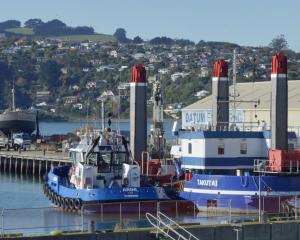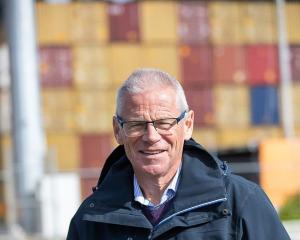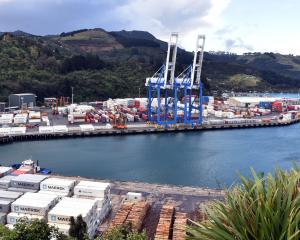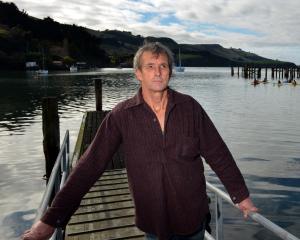
The independent hearing panel, led by John Lumsden, has just released its decision approving the proposal.
The approval is subject to wide-ranging conditions, involving ongoing monitoring and research into the effects of the dredging and soil disposal and the formation of three consultative groups.
Port Otago chief executive Geoff Plunket yesterday hailed the decision as good for the region and "really great news for the city".
"I'm very pleased with the decision. We've spent four years on this, it was well researched and I think our evidence was well presented."
There was still an appeal period before the project could begin but it had never been the company's intention to "rush out" and start dredging, he said.
However, the company might do some incremental deepening from the current 13m-deep channel to 13.1m or 13.2m initially.
Most submitters approached by the Otago Daily Times yesterday had not seen the decision and while not surprised by the approval of the consents, were keen to read the conditions imposed.
Mr Lumsden said the panel had concluded there were "significant benefits to the proposal and that it would promote the sustainable management of natural and physical resources".
The panel was mindful the port, along with channel dredging, had been in existence for almost 150 years and "no serious evidence of adverse effects occurring in that time as a result of port operations were brought to our attention", he said.
However, it was "of some importance" that a significant majority, 75% of the 200 submitters, opposed the decision.
Their main concerns were around the effects of sedimentation on Otago Harbour and offshore, soil disposal offshore, channel deepening on nationally recognised surf breaks at Aramoana and the effects of noise from the port on residents.
The panel sought advice from Otago Regional Council's legal adviser on the issue of noise, concluding port noise was a matter covered by the Dunedin City Council's district plan and "was not something over which we are able to exercise any control as part of this consent process".
The issues within the panel's jurisdiction - the effects of sedimentation on ecology and on waves passing over a deepened channel and spoil disposal sites - were "almost entirely dependent" on the hydraulic modelling undertaken by Port Otago, he said.
"In accepting the modelling evidence, we have recognised the model used is internationally accepted and that the work was twice peer-reviewed and considered fit for the task."
An extensive programme of plume monitoring was planned, to identify and redress adverse effects of sediment movement and depositing. This was the "prime reason" for the panel's approval, Mr Lumsden said.
"We are satisfied that the effects of sedimentation can be avoided, remedied or mitigated. We have come to the same conclusion with respect to the effects of soil disposal offshore at the AO site and channel deepening on waves at Aramoana."
Mr Plunket said the company had always acknowledged the hydraulic modelling, while as good as it could be, was still only a mathematical model.
"As we go along we'll be able to confirm the science was correct, but if variations show up, we have procedures in place to review them so the work does not cause any environmental impacts."
The consultative groups required by the consents - the manawhenua group, technical group and project group - would continue the company's attempts to engage with stakeholders, he said.
Surfbreak Protection Society South Island representative Nicola Reeves said she was "gobsmacked" at reading the decision and its comments in relation to the nationally protected surf break at Aramoana.
She believed the panel had not heard or understood the society's concerns about dumping of the soil at the inshore site near Aramoana.
The society did not have the funds to appeal the decision, she said.
It acknowledged it would have the opportunity to speak against the dumping when Port Otago's consent to do so at the site was reviewed.
This would be before the consent came up for renewal in December.
Port Otago proposal
• Upgrade channel berth and swinging areas.
• Dispose of 7.2 million cu m of soil at sea.
• Extend multipurpose wharf by 135m.
• Construct fishing wharf at end of Boiler Pt walkway.






